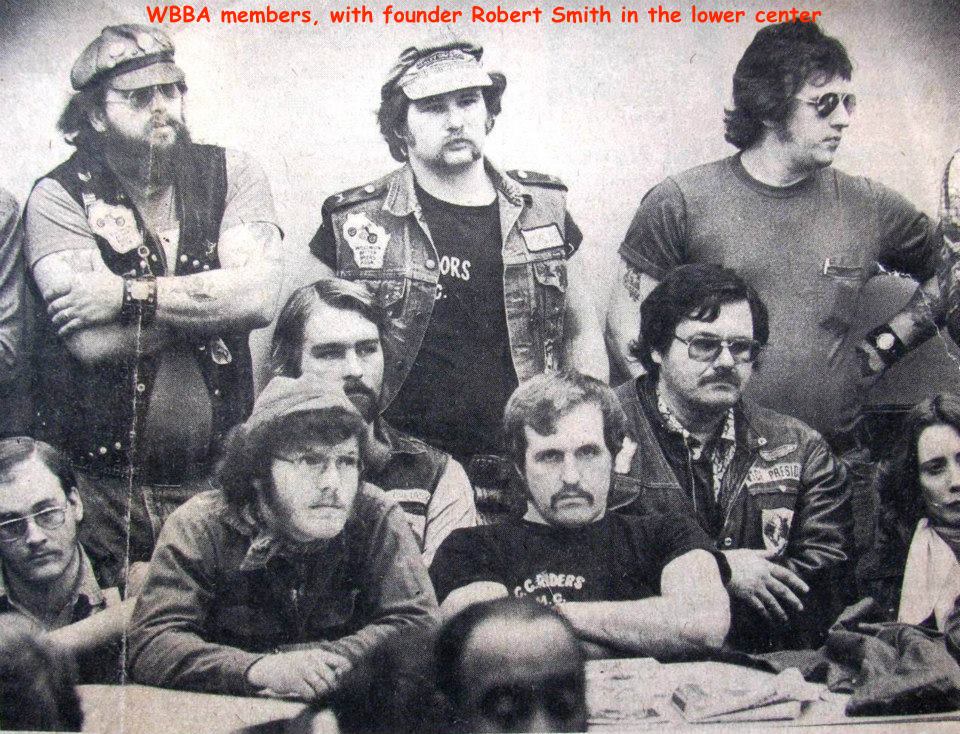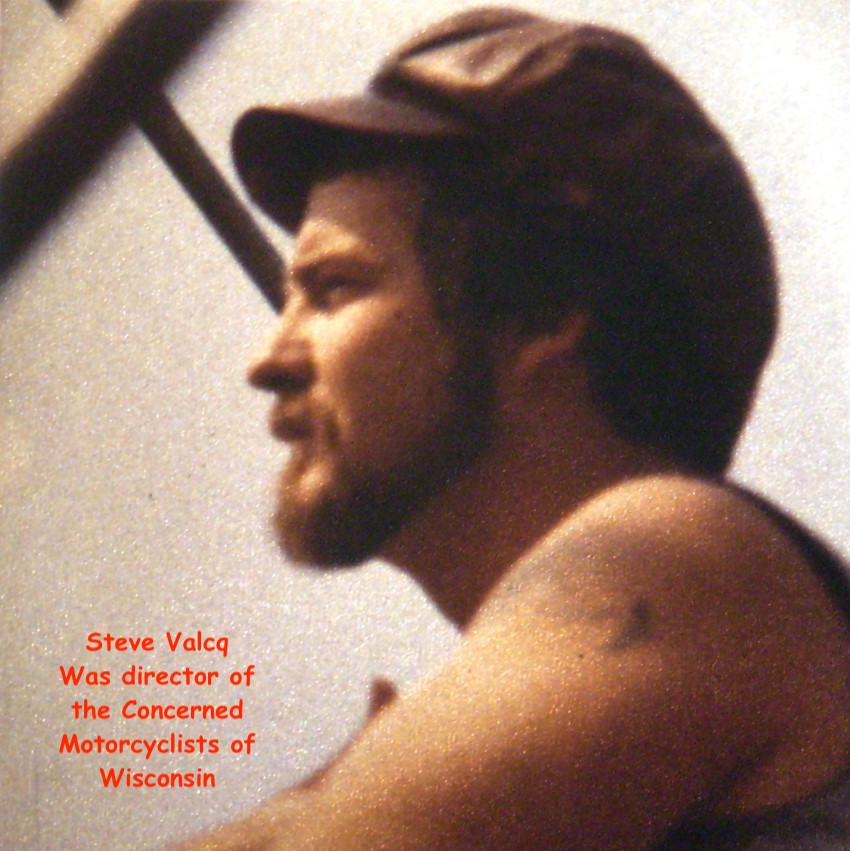Groups Coming Together
The early 1970s witnessed the emergence of several groups in Wisconsin concerned with the newly enacted helmet law, a product of the Safety Act of 1966. Although the American Motorcyclist Association had been in existence since the early 1920s, none of the street riders considered it representative of their style of riding. The AMA was mostly for the off-road and racing enthusiasts. The maverick stylings of Wisconsin’s road riders didn’t fit the AMA culture. In Madison, a bike shop owned by brothers Richard and Robert Smith became the center of the motorcyclist’s rights movement in Wisconsin. Both members of the CC Riders Motorcycle Club, the Smith’s Brothers Cycle Shop on East Williamson Street was the mecca for bike clubs throughout the state and the Wisconsin Better Bikers Association was formed (WBBA). Situated close to the state capitol, it was an ideal location to launch a movement opposing restrictive measures aimed at motorcyclists.
In Milwaukee, a less effective group formed under the auspices of Marty Petrufcynski, a former member of the Black Jackets MC. Petrufcynski owned Petro’s Jammin’ Supplies, later known as PJS Cycles. Marty founded the Federation of Concerned Bikers. The distance from Madison and the growth of his cycle business caused him to abandon the effort after a short time.
Another group formed in West Bend, founded by travel agent Steve Valcq. That group was the Concerned Motorcyclists of Wisconsin (CMW), a forerunner to ABATE of Wisconsin. CMW meetings were held at Valcq’s home in West Bend, and at Rich’s Pit Stop, a motorcycle shop on 57th and North Ave. in Milwaukee. The Vice-President of the CMW was John Barajas, owner of Bazaar Cycles in North Fond du Lac. The CMW Secretary was Tony “Pan” Sanfelipo. They started at CMW in 1972, and in two years, had taken over as co-directors for a new organization started in California, known as ABATE. From 1974 through the helmet repeal years, CMW/ABATE was a combined force representing mostly the riders of the east side of Wisconsin. The WBBA represented clubs and individuals throughout the state and had a huge membership. In a year since inception, ABATE grew its membership to 1,000 riders. The acronym ABATE stood for A Brotherhood Against Totalitarian Enactments. A mouthful to be sure, but it represented the anger and distrust we had for arbitrary government interference in matters we felt should be left up to the individual. The stage was set, the players defined, and the battle lines were drawn. Unfortunately, our major organizations, WBBA and ABATE, didn’t coordinate efforts very well and there were egos and personalities that clashed (as happens in most groups competing for similar goals). It took a few years, and some conflicts, before the groups were finally trusting of each other the work that needed to be done became the priority.
Reflecting back, and comparing our successes to other states, Wisconsin did a remarkable job of repealing a law in only four years (the time it took to organize two major organizations an effect repeal), a law that our supreme court ruled constitutional and a law supported by our Department of Transportation. Not only did we repeal the law and earn the right for adults to choose whether to wear a helmet or not, we overcame a governor’s veto of the law by securing a 2/3rds vote to override in both houses of our legislature. The meetings, public hearings, lobby efforts, group rides and more are too numerous to go into detail here, but suffice it to say that those were some of the most exciting and exhilarating times Wisconsin bikers have ever witnessed. The WBBW and ABATE were mighty forces when combining their efforts, and overwhelmed not only the legislators and bureaucrats who opposed repeal, but also defeated the hired guns sent to Wisconsin from the federal government (NHTSA) to attempt to convince our lawmakers to retain the law. We must also thank a group of ABATE members from around the country who testified in 1976 at a U.S. House of Representatives sub-committee on Surface Transportation, dealing with HR3869. The Huns MC in Connecticut convinced U.S.
Representative Stewart McKinney to author this bill, which would dismantle the federal government’s ability to blackmail states into adopting helmet laws at the risk of losing highway funds. With the passing of HR3869, a large number of states repealed the helmet law by 1978 (Wisconsin included).




